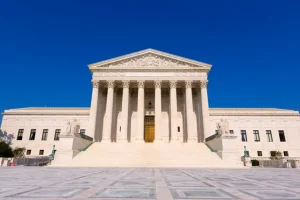New FTC TSR B2B and Record-Keeping Rules: What You Need to Know
Compliance is not just a buzzword; it’s a fundamental aspect that ensures fair practices, protects consumers, and maintains trust in the marketplace. For companies engaging in telemarketing activities, adherence to regulations set by the Federal Trade Commission (FTC) is crucial. Recently, the FTC introduced new rules regarding record-keeping under the Telemarketing Sales Rule (TSR), aiming to enhance transparency and accountability in telemarketing practices.
The TSR has long served as a cornerstone of consumer protection regulations, governing telemarketing activities and prohibiting deceptive and abusive practices. With the advent of new technologies and evolving business models, the FTC recognized the need to modernize the TSR’s record-keeping requirements to align with current practices and better safeguard consumers’ interests.
Understanding the Changes
The updated TSR record-keeping rules introduce several key revisions designed to bolster compliance and streamline documentation processes for telemarketers. Among the notable changes are:
1. Expanded Scope: The new rules broaden the scope of covered entities, encompassing not only telemarketers but also sellers, and other entities involved in telemarketing transactions. This extension aims to hold all parties involved accountable for their actions and ensure comprehensive oversight across the telemarketing network.
2. Retention Period: The updated rules specify a minimum retention period of five years for all records related to telemarketing transactions. This duration ensures that pertinent information remains accessible for regulatory review and enforcement purposes, enabling authorities to investigate potential violations effectively.
The good news is that many compliance-minded companies are already keeping these records, although they may need to extend their timelines. Among other specific requirements for telemarketing calls, the following must be kept applicable to dialing records:
- The telemarketer that placed or received the call;
- The seller or person for which the telemarketing call is placed or received;
- The good, service or charitable purpose that is the subject of the telemarketing call;
- Whether the telemarketing call is to an individual consumer or a business consumer;
- Whether the telemarketing call is an outbound telephone call;
- Whether the telemarketing call utilizes a prerecorded message;
- The calling number, called number, date, time and duration of the telemarketing call;
- The telemarketing script(s) and prerecorded message, if any, used during the call;
- The caller identification telephone number, and if it is transmitted, the caller identification name that is transmitted in an outbound telephone call to the recipient of the call (and certain documentation or other proof of authorization for the use of that telephone number/name and the time period for that authorization), and
- The disposition of the call, including but not limited to, whether the call was answered, connected, dropped or transferred.
Telemarketers must also maintain a “record of which version of the Commission’s ‘do-not-call’ registry was used to ensure compliance with [16 C.F.R. Part] § 310.4(b)(1)(iii)(B)” which generally prohibits calls to telephone numbers on the “do-not-call registry”. Such records must include:
- The name of the entity which accessed the registry;
- The date the “do-not-call” registry was accessed;
- The subscription account number that was used to access the registry; and
- The telemarketing campaign for which it was accessed.
3. Enhanced Accessibility: To facilitate compliance and enforcement efforts, the FTC emphasizes the importance of organizing and maintaining records in a manner that allows for prompt retrieval and inspection. Telemarketers are encouraged to implement robust record-keeping systems that facilitate efficient record storage, retrieval, and analysis.
Misrepresentations in Business-to-Business Calls
The TSR generally excluded B2B calls other than calls to sell office and cleaning supplies. At the time, the FTC determined that such B2B calls were the “most significant business-to-business problem area.” The FTC has continued to monitor areas of concern for B2B telemarketing. With the proliferation of deceptive, scam, and “spoofed” telemarketing in recent years, the FTC has concluded that deceptive B2B telemarketing is now a major area of concern harming businesses—particularly small businesses. These types of calls also thwart FTC action because the technology used can make it difficult to “identify the bad actor responsible for the spoofed or otherwise illegal calls.”
To that end, the Final Rule extends the portions of the TSR that prohibit misrepresentations and false or misleading statements to apply to B2B calls (as those provisions already apply to consumer-facing calls). It does not change any scrubbing requirements against the Federal Do Not Call Registry.
Implications for Telemarketers and Sellers
For telemarketers and sellers, compliance with the new TSR record-keeping rules entails proactive measures to adapt to the regulatory changes and ensure adherence. Key considerations include:
1. Investment in Compliance Infrastructure: Telemarketing entities must allocate resources to develop and implement robust record-keeping systems capable of capturing and retaining required information effectively. This may involve solutions tailored to record management and compliance monitoring/enforcement.
2. Training and Education: Comprehensive training programs are essential to familiarize employees with the updated TSR requirements and instill a culture of compliance within the organization. Telemarketers should educate staff members on their obligations regarding record keeping and the importance of maintaining accurate and thorough documentation.
3. Regular Audits and Reviews: Conducting periodic audits and reviews of record-keeping practices enables telemarketers to identify potential gaps or deficiencies in their compliance program. By proactively addressing issues and implementing corrective measures, organizations can mitigate regulatory risks and uphold industry standards.
Looking Ahead
The FTC’s implementation of revised record-keeping rules under the TSR underscores its commitment to safeguarding consumer interests and promoting integrity in telemarketing practices. While compliance may present challenges for telemarketers, embracing proactive measures and adopting a culture of compliance can position organizations for sustained success in an increasingly regulated environment.
By prioritizing transparency, accountability, and consumer protection, telemarketers can not only meet regulatory obligations but also foster trust and credibility with their target audience. As the regulatory landscape continues to evolve, staying abreast of changes and proactively adjusting compliance strategies will remain imperative for telemarketers seeking to navigate the complexities of the modern marketplace.
If your company has any questions or concerns about complying with the FTC’s new changes under the TSR, please contact connect@compliancepoint.com.
Finding a credible expert with the appropriate background, expertise, and credentials can be difficult. CompliancePoint is here to help.





